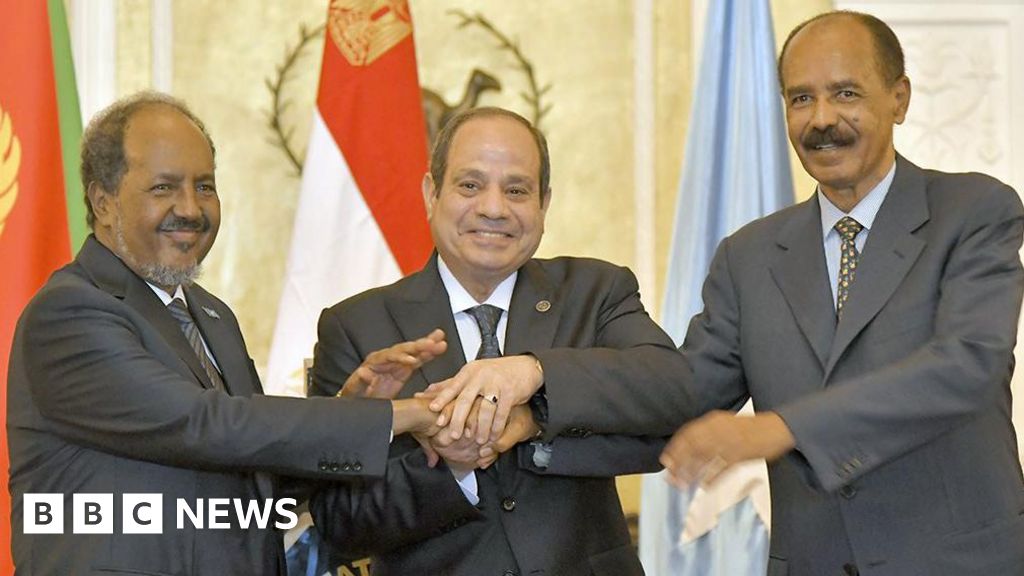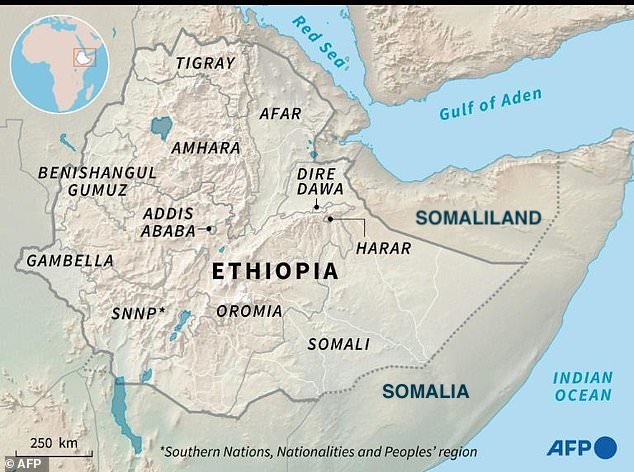In a bold move that has sent ripples across the Horn of Africa, Egypt’s recent foray into Somalia has ignited a firestorm of controversy and concern. This development, viewed by many as a strategic counter to Ethiopia’s growing influence, threatens to upset the delicate balance of power in a region already fraught with complex geopolitical tensions.
 Dr. Yassin Ahmed, President of the Ethiopian Public Diplomacy Institute (EPDI) in Sweden, didn’t mince words when addressing the situation. “Egypt’s intervention in Somalia poses an unprecedented threat to regional stability,” he asserted in an exclusive interview. Dr. Ahmed’s statement comes at a time when the Horn of Africa is grappling with multiple crises, including the ongoing civil war in Sudan and persistent instability in Somalia.
Dr. Yassin Ahmed, President of the Ethiopian Public Diplomacy Institute (EPDI) in Sweden, didn’t mince words when addressing the situation. “Egypt’s intervention in Somalia poses an unprecedented threat to regional stability,” he asserted in an exclusive interview. Dr. Ahmed’s statement comes at a time when the Horn of Africa is grappling with multiple crises, including the ongoing civil war in Sudan and persistent instability in Somalia.
Historically, Egypt has maintained a somewhat aloof stance towards African affairs, particularly in the Horn. This sudden interest in Somalia, therefore, raises eyebrows and questions about Cairo’s true motives. Dr. Ahmed suggests that Egypt’s move is inextricably linked to its concerns over the Grand Ethiopian Renaissance Dam (GERD), a project that has been a source of contention between the two nations for years.
Egypt’s track record in peacekeeping operations has been less than stellar. Its struggles to maintain peace within its own borders and in neighboring countries like Libya cast doubt on its ability to contribute positively to Somalia’s complex situation. This inexperience stands in stark contrast to Ethiopia’s long-standing commitment to regional and global peacekeeping efforts, which have earned Addis Ababa respect from the international community.
Perhaps most alarming is Egypt’s reported supply of weapons to Somalia. In a country still grappling with the threat of al-Shabaab and other extremist groups, the influx of arms could potentially exacerbate existing security challenges. “If these weapons fall into the wrong hands, they could pose a serious threat to the entire region,” Dr. Ahmed warned.
The situation becomes even more intricate when considering Ethiopia’s recent Memorandum of Understanding (MoU) with Somaliland regarding sea access. This agreement, if fully realized, could dramatically alter the region’s economic and security landscape. Ethiopia, as the largest country in the Horn, could emerge as a key player in safeguarding the Red Sea, a vital international shipping route.
Dr. Ahmed emphasizes the need for regional cooperation as the best defense against external interference. “Peace, security, and stability come through strengthening common economic interests,” he noted. This approach aligns with the growing recognition that economic integration can be a powerful tool for conflict prevention and resolution.
As these events unfold, the international community watches with bated breath. The Horn of Africa, with its strategic location and abundant resources, has long been a theater for global power plays. Now, with Egypt’s intervention in Somalia and Ethiopia’s potential emergence as a maritime power, the region stands at a crossroads.
The situation has further intensified this week with a high-profile summit meeting between Egypt, Somalia, and Eritrea. The tripartite gathering, held in Cairo, saw the leaders of these nations presenting a united front against Ethiopia’s potential access to the Red Sea through Somaliland. In a joint statement, the three countries expressed their “deep concern” over what they termed as a threat to regional stability and the sovereignty of Somalia.

This summit is the culmination of weeks of diplomatic maneuvering and public protestations from all three nations. Somalia, in particular, has been vocal in its opposition, viewing the Ethiopia-Somaliland agreement as an infringement on its territorial integrity. Eritrea, with its own complex history with Ethiopia, has aligned itself with this position, while Egypt sees the deal as a potential threat to its interests in the Nile waters dispute.
Despite this pressure, both Ethiopia and Somaliland have stood their ground, asserting the mutual benefits of their agreement. Ethiopian Prime Minister Abiy Ahmed reiterated his country’s commitment to the MoU, emphasizing that it aims to promote regional economic integration rather than threaten any nation’s sovereignty. Somaliland’s President Muse Bihi Abdi echoed this sentiment, highlighting the potential for economic growth and stability that the agreement could bring to the region.
Interestingly, the controversy has drawn in global powers, with the United States, the United Kingdom, and the European Union expressing varying degrees of concern about the agreement’s potential impact on regional stability. The U.S. State Department, while recognizing Ethiopia’s need for sea access, urged for a solution that respects Somalia’s sovereignty. Similarly, the UK and EU have called for dialogue and a peaceful resolution to the disagreement.
However, Ethiopia and Somaliland’s steadfast position in the face of this international pressure underscores the shifting dynamics in the Horn of Africa. It reflects a growing assertiveness among regional players to chart their own course, even when it means going against the preferences of traditional global powers.
As these events unfold, the international community watches with bated breath. The Horn of Africa, with its strategic location and abundant resources, has long been a theater for global power plays. Now, with Egypt’s intervention in Somalia, the tripartite alliance’s opposition, and Ethiopia’s potential emergence as a maritime power, the region stands at a crossroads.
The coming months will be crucial in determining whether these developments lead to increased cooperation or further conflict. As Dr. Ahmed aptly put it, “It would be more appropriate for Egypt to cooperate with Ethiopia in preserving regional security.” Whether Cairo heeds this advice remains to be seen.
In the meantime, the people of Somaliland, caught in the middle of this high-stakes geopolitical chess game, continue to hope for a future free from conflict and instability. Their fate, it seems, is increasingly tied to the broader currents shaping the future of the Horn of Africa and the Red Sea region.![]()



























